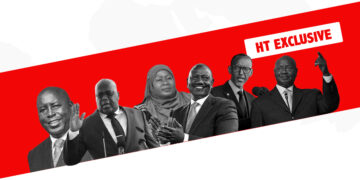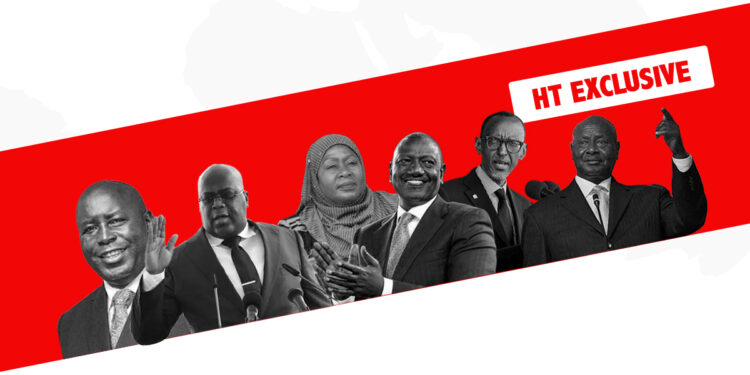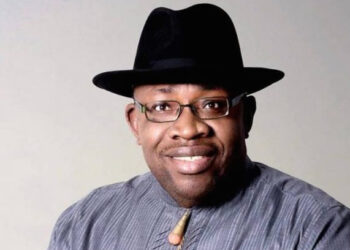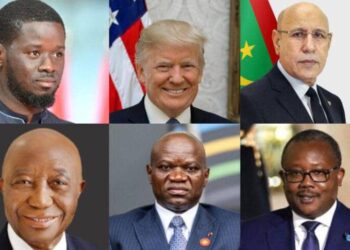By Elie Mutangana, Kigali
Amid the continuing standoff between Israel and Hamas militants which started unprecedentedly on October 7, 2023, officials in the East African bloc have expressed varying reactions, explaining that countries are responding accordingly with possible solutions.
However, countries in the world look like they are torn between responding to the conflicts, with varying views. Analysts have said that considering the broader context and history of the Israel-Palestine conflict, some African countries have presented themselves as pro-Israel, while others demonstrated support for Palestine, as some others, including Nigeria, taking neutral sides. The neutral-sided countries are campaigning for a two-state solution and respect of sovereignty for each of the warring states, in alignment with the United Nations resolution.
Some East African countries have so far reacted and taken sides in the conflict in accordance to their relationships with Israel and Palestine. This is largely inspired by shared similar history, beliefs or bilateral relations, diplomatic analyst in East Africa have said.
For instance, Kenya’s President, William Ruto wrote on X (formerly Twitter) that he condemned the unprecedented attack by Hamas militants that targeted civilians in South East of Israel.
“Kenya Joins the rest of the world in solidarity with the state of Israel and unequivocally condemns terrorism and attacks on civilian in the country,” President Ruto wrote on X.
He called on the international community to mobilize to bring the perpetrators, organizers, financiers, supporters and enablers of the attack to account for their crimes.
The Kenyan response to the conflict was not surprising, as experts say the country has been positioning itself as a strong ally of the United States, an absolute and strong supporter of Israel. Kenya have held several bilateral partnerships with the state of Israel over the years.
Also, given that Kenya banks on the US for support and weapons to tackle some of its security threats such as Al shabaab and Somali Islamist groups, the decision for Kenya’s stand is clear. The United States as well as Israel, had in the past brokered deals to enter in political and trade partnership with the Kenyan government and other governments across the region.
Kenya, arguably the greatest economy of East Africa, has been the West’s strategic ambassador of capitalism in Africa. But analysts have warned Kenya of its biased position on the conflicts, that they say can trigger and motivate the undeterred Islamist groups to keep wreaking havoc in its affected eastern region that it borders with Somalia, most of whom are undoubtable supporters of Palestine.
The government of Uganda on its part, denounced the re-emergence of the Israel and Palestine conflict, expressing global concerns on it and condemning the attack on civilians. It also stressed that both countries should uphold the 1947 UN Resolution of two sovereign states.
“The breakout of renewed violence in Israel and Palestine is regrettable. Why don’t the two sides implement’s solution? ” said Uganda’s President, Yoweri Museveni.
Uganda’s relations with the state of Israel have been characterized by thick and thin, especially drawing from a bad incident in 1976 when former Ugandan President Idi Amin accepted for Palestinian-led hijackers to land civilian passengers flight, owned by Air France, and largely consisted of a big number of Israeli passengers, at Kampala’s Entebbe airport.
Heritage Times HT recalls that the hijackers seized Israeli passengers as hostages at the airport terminal. However, the hostages were finally rescued by a counter-terrorism operation code-named “Thunderbolt”, by the Israeli forces.
But irrespective of such bad history, the Museveni regime appears to be trying to thaw the relations between his government and the state of Israel.
For example in 2022, Uganda and Israel signed MoUs in defence cooperation, as Israel agreed to share military technology with Uganda’s forces, UPDF.
Nonetheless, neither Uganda nor Israel has set up an embassy in both sides. Experts say that Uganda’s neutral stance could have been driven by the current shadow that appears in Uganda’s relations with the West, following the LGBTQs law in Uganda that brought controversies.
In addition, Uganda has embraced strong relations with the Iranian state, following the state visit of Iranian President, Ebrahim Raisi in Uganda earlier in July. Contrastingly, Israel has accused Iran of spearheading the Hamas Attacks against Israel.
Tanzania is another East African country that has demonstrated a neutral position on the Israel and Palestine conflict. When Hamas attacked in Israel, two Tanzanian students residing in Israel were reportedly missing according to Tanzanian media reports. They are yet to be recused.
Tanzania holds a reputation of standing neutral in different situations such as this.
Palestine has an embassy in Tanzania, and recently when Israel seized Gaza in a counter-attack, the Palestinian embassy in Tanzania issued a statement condemning the ongoing conflict in Gaza, as well as calling on the international community “to act against terror operations in Gaza”.
“The communities has the responsibility to promote the accountability, which is the only viable remedy for this illegal and abhorrent situation,” the Palestinian embassy in Tanzania stated.
On the part of the Government of Tanzania, its Foreign Affairs and East African Cooperation Minister, January Makamba, denounced the acts of violence on civilians and urged both sides to go for effective means to resolve the disputes.
The Democratic Republic of Congo (DRC) is the second country in East Africa after Kenya, which initially condemned “the terrorists attack” on Israel and expressed “solidarity with the Israeli people”.
For DR Congo, the government has pledged support to Israel and has condoled families that lost their beloved ones.
Israel and DR Congo have enjoyed relations since Congo’s Independence in 1960. DRC has its embassy in Tel Aviv city and recently announced to relocate it to the controversial Jerusalem city.
Furthermore, in September last year, Israeli Prime Minister, Benjamin Netanyahu, in response announced the plan to open an embassy in DR Congo’s capital Kinshasa.
Rwanda has sent humanitarian aid to the war-stricken people in Gaza.
Initially Rwanda condemned the attacks by Hamas against civilians in Israel. Recently the country expressed condolences and solidarity to the contending Palestinians in the Gaza strip also, following the Israeli defensive counter-attack.
Rwanda maintains a good relationship with the state of Israel. Both countries have embassies in each and country, and share a variety of bilateral benefits.
However, with the deal brokered by the United Nations and Egypt, the Rwandan Government successfully sent a RwandAir cargo carrying 16 tonnes of medicine, food and water into Gaza, through the Rafah crossing from Egypt.
The aid was received by the Jardanian Hashemite Charitable Organization (JHCO).
The gesture according to local analysts, shows that Rwanda stands for peace, restoration and civilian protection, regardless.
Amid the conflict, Israeli ambassador to Rwanda, Einat Weis has since condemned the Hamas militants for their “inhumane behaviour, crimes against civilians and destructive target against Holy sites including in Jerusalem”. She also labelled it as “warmongering”.
“No one will take our spirit away. They can take out friends, family members but they will not Break us down. They will not succeed in what they want,” the ambassador who spoke to journalists in Kigali on October 12, said.
Meanwhile, experts in Rwandan diplomacy who commented on the country’s humanitarian aid to Gaza, said Rwanda also wants to uphold its good relations with the Arab countries as well, who are reportedly supporting Palestine in the conflict.
“Apart from Rwanda’s relations with Israel, it also a good friend of Arabic states such as UAE, Saudi Arabia and many others in the Middle East. So that’s a good thing for its diplomacy,” said a political analyst who spoke exclusively to Heritage Times HT.
The Rwandan Ministry of Foreign Affairs has commented in a statement that “the current situation is worrying and requires urgent de-escalation”.
Meanwhile, Burundi is the only country in the East African region that has said nothing on the conflict. The country enjoys no extraordinary relations with any of the warring states.



































